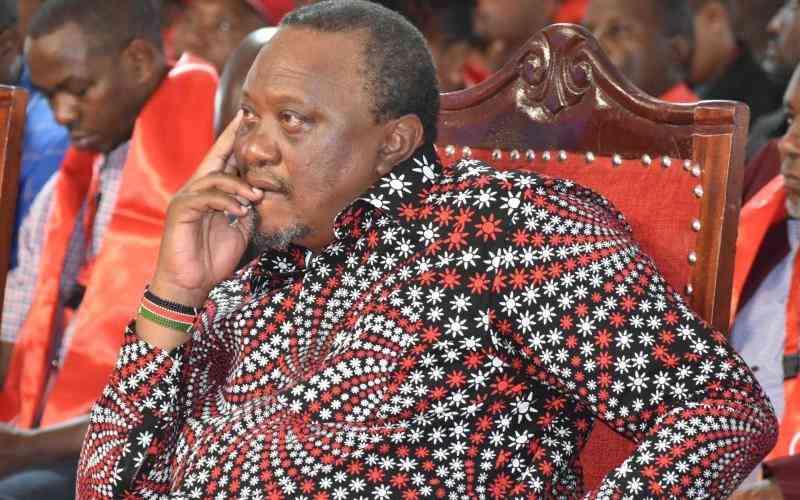
Did former President Uhuru Kenyatta hold back too much of what is in his heart about the Kenya Kwanza government? Listening to his speech at the Jubilee National Delegates Conference (NDC) which at some point was punctuated by chants of "toboa, toboa" (spill the beans), it was evident that Uhuru's repeated statements of "we are peaceful people" were loaded with deeper meaning.
The furthest Uhuru drove home the peace clarion is to say that even peaceful people deserve respect, adding that if people in government behave as thugs towards others they will also be treated with thuggish behaviour.